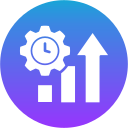Stories from the Trenches
Maya used to limp into weekends exhausted. She themed Fridays as Review and Reset, batching invoices, proposals, and planning next week’s blocks. Within a month, she reclaimed her evenings and reported calmer Mondays. Share your Friday theme ideas to inspire others.
Stories from the Trenches
Javier moved recurring 1:1s and standups into a two-hour collaboration block. He announced deep work zones from 9–11 AM daily. Deliverables sped up, and fewer Slack pings happened mid-focus. Try a pilot week with your team and tell us what changed.



